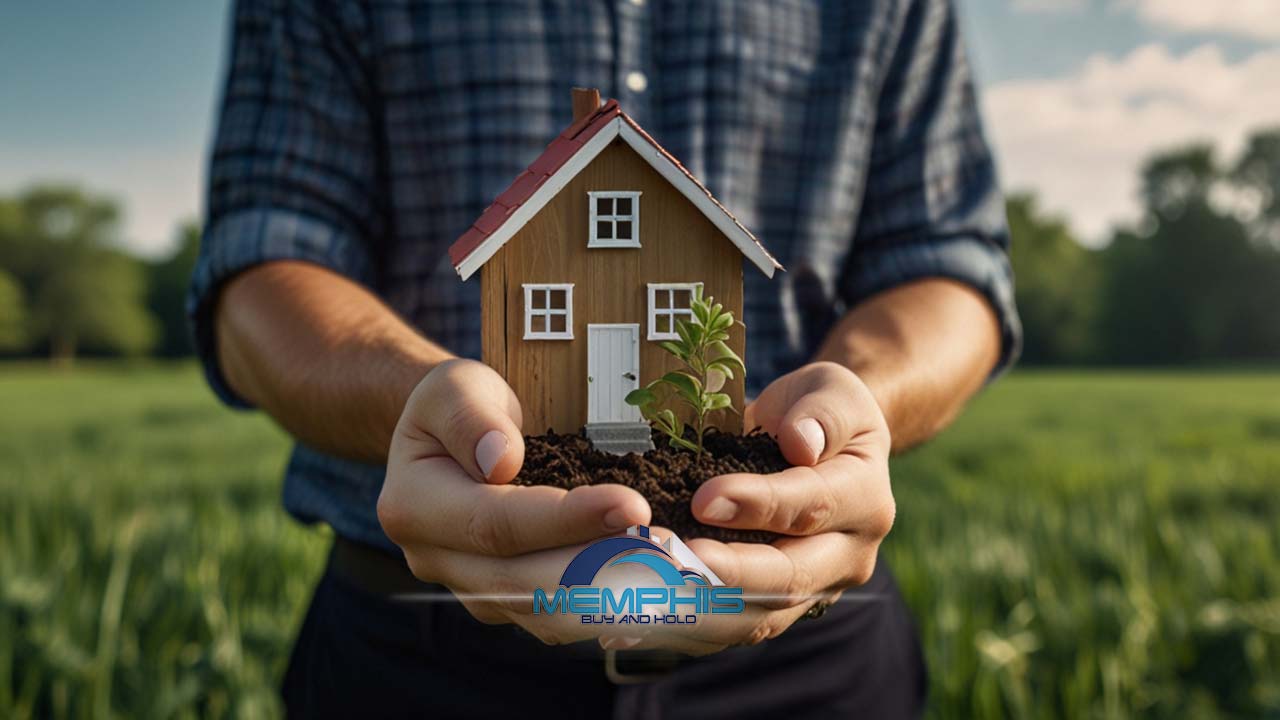
Sustainable investing, which incorporates environmental, social, and governance (ESG) factors into financial decisions, is becoming a growing focus in the real estate market. Buy and hold real estate investors—who acquire properties for long-term rental income and appreciation—are increasingly considering sustainable practices. These not only reduce environmental impacts but also improve tenant satisfaction, lower operating costs, and enhance the long-term value of properties. This article explores how sustainable investing practices can be integrated into the buy-and-hold real estate strategy.
The Importance of Sustainability in Real Estate
Sustainability in real estate investing goes beyond meeting regulatory requirements or reducing carbon footprints. It addresses a broader vision of responsible ownership and stewardship of property. Sustainable real estate reduces resource consumption, improves energy efficiency, and promotes healthier living spaces, which leads to long-term cost savings, higher tenant retention rates, and increased property value.
For buy-and-hold investors, adopting sustainable practices can create lasting financial benefits while contributing to a healthier planet. This synergy between financial returns and environmental responsibility forms the cornerstone of sustainable real estate investing.
Key Sustainable Investing Practices in Buy and Hold Real Estate
- Energy Efficiency Improvements
Investors can significantly reduce the energy consumption of their properties by adopting energy-efficient measures. Simple upgrades like LED lighting, energy-efficient appliances, and improved insulation can lower utility costs for both landlords and tenants. In larger multifamily or commercial properties, investments in high-efficiency HVAC systems, solar panels, or smart thermostats can drastically cut energy use.
Energy-efficient buildings are often more attractive to tenants, especially those conscious of their own environmental impacts. Moreover, properties with lower energy consumption can command higher rents, as tenants are willing to pay a premium for sustainable, cost-effective living spaces.
- Water Conservation
Water conservation practices are another key element of sustainable real estate investing. This can include the installation of low-flow fixtures, rainwater harvesting systems, or landscaping with drought-resistant plants. These measures not only reduce water bills but also demonstrate a commitment to resource conservation, appealing to environmentally conscious tenants.
In regions facing water scarcity or rising utility costs, these improvements can be a major competitive advantage. Sustainable water practices also align with long-term regulatory trends, as governments increasingly mandate conservation efforts in the face of climate change.
- Green Building Certifications
Certifications such as LEED (Leadership in Energy and Environmental Design) or Energy Star provide buy-and-hold investors with a formal framework to achieve sustainability goals. These certifications can make properties more marketable to tenants and buyers who prioritize eco-friendly living. They also provide third-party validation that the property meets rigorous environmental and energy-efficiency standards.
Though achieving such certifications may require an upfront investment, the long-term financial benefits are clear. Certified buildings often have lower operating costs, longer lifespans, and higher property values, making them ideal candidates for a buy-and-hold strategy.
- Sustainable Building Materials
When upgrading or maintaining properties, using sustainable building materials is crucial. These materials, such as reclaimed wood, recycled steel, and low-VOC (volatile organic compound) paints, have a lower environmental impact and contribute to healthier indoor air quality.
Sustainable materials often last longer and require less maintenance, reducing long-term expenses. For investors, this translates to fewer costly renovations and repairs over the life of the property. Additionally, sustainable materials contribute to better tenant health and well-being, potentially reducing turnover rates.
- Sustainable Property Management Practices
Incorporating sustainability into property management is another critical area for buy-and-hold investors. This includes everything from waste management and recycling programs to promoting energy conservation through tenant education. Property managers can also employ green cleaning practices that use eco-friendly products to maintain healthy indoor environments.
Moreover, embracing technology—such as smart metering for utilities or energy monitoring systems—can help both investors and tenants track and reduce energy usage over time. Sustainable management not only keeps operational costs down but also attracts tenants who value responsible and environmentally conscious living.
Financial Benefits of Sustainable Real Estate
Sustainability in real estate isn’t just about environmental responsibility—it also offers numerous financial incentives. Here are a few ways in which buy-and-hold investors can benefit financially from sustainable practices:
- Lower Operating Costs: Energy-efficient systems, water-saving fixtures, and sustainable materials reduce the overall operational costs of maintaining a property.
- Tax Incentives and Rebates: Governments and local authorities often provide tax incentives, rebates, or subsidies for real estate investors who make energy-efficient upgrades or follow green building practices.
- Higher Property Values: Properties that are energy-efficient and sustainably managed tend to have higher market values, ensuring better returns upon resale or refinancing.
- Increased Rental Income: Sustainable buildings often attract higher rents as tenants are willing to pay more for eco-friendly living. Energy savings and a healthier living environment create additional value for tenants.
- Resilience Against Regulatory Changes: As governments continue to push for greener policies, sustainable properties are more likely to meet future regulations without requiring costly retrofits or upgrades.
For buy-and-hold real estate investors, sustainability offers a path to long-term success. Energy-efficient upgrades, water conservation efforts, and sustainable materials not only lower operational costs but also create healthier, more attractive living environments. Green certifications and sustainable property management practices further enhance the appeal and value of properties.
By integrating these sustainable investing practices, buy-and-hold investors can build portfolios that are financially rewarding, resilient to future challenges, and aligned with broader societal goals of environmental responsibility. The result is a win-win scenario where both profits and the planet benefit.
Memphis Buy And Hold is specializing in locating, purchasing, renovating and managing single-family and multi-unit properties and possesses from 2007 up to the present of experience in real estate investing and property management in the Memphis and Nashville markets.
- Memphis Property Management
- Memphis Turnkey Investment Properties
- DCC Rentals LLC
Discover more from Memphis Buy And Hold
Subscribe to get the latest posts sent to your email.


